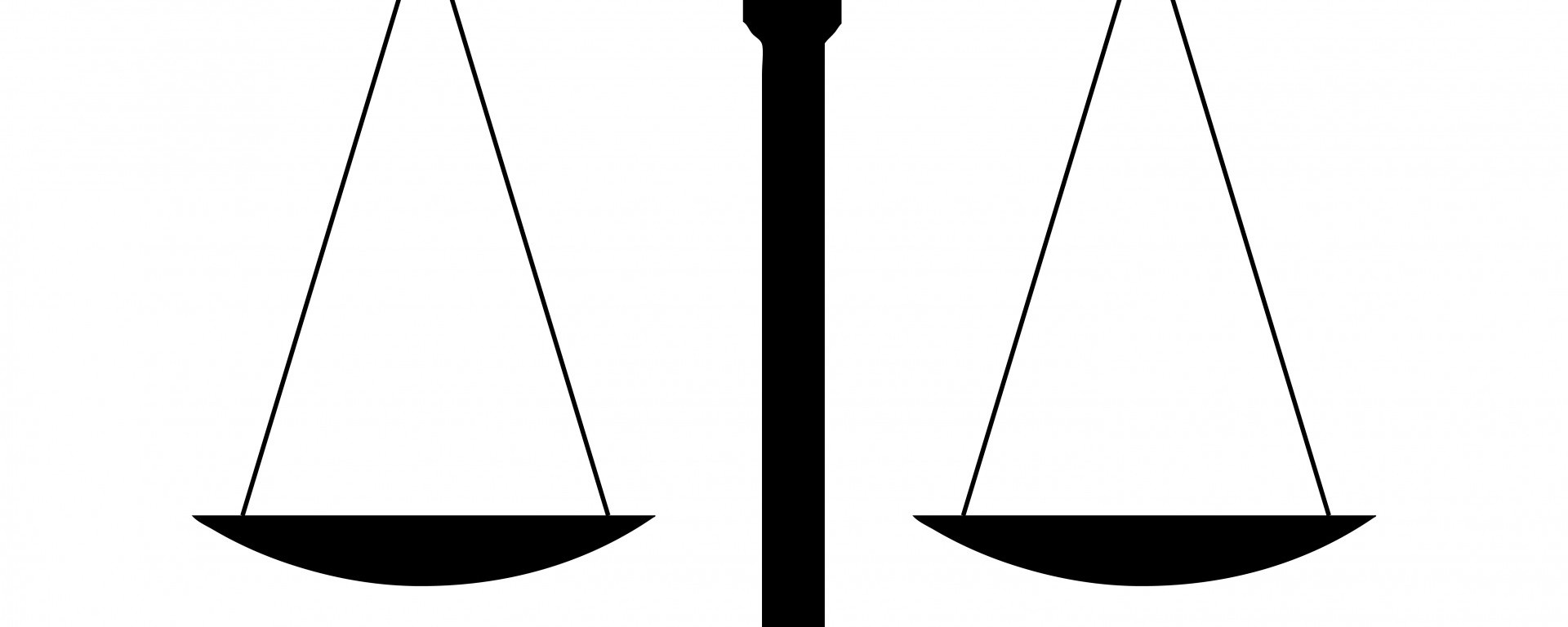Jeff Berger —
 Last October I was called to jury duty. When the judge announced what the case was about, I felt a chill go down my spine. It was a well-known kidnapping/murder case, and the prosecution was going for the death penalty. Coincidentally, there was a California state proposition on the ballot of the November 2016 election that was to occur 3 weeks later. The judge told us prospective jurors to expect the trial to last up to 4 months. I had mixed feelings about serving that long on a jury, because I worried that it would wreck my diet and disrupt my exercise regime and home life; and having just retired this year I didn’t want to have to get up early and commute 45 minutes every day for 4 months. On the other hand, I wanted to do my civic duty and thought it would be a fascinating experience.
Last October I was called to jury duty. When the judge announced what the case was about, I felt a chill go down my spine. It was a well-known kidnapping/murder case, and the prosecution was going for the death penalty. Coincidentally, there was a California state proposition on the ballot of the November 2016 election that was to occur 3 weeks later. The judge told us prospective jurors to expect the trial to last up to 4 months. I had mixed feelings about serving that long on a jury, because I worried that it would wreck my diet and disrupt my exercise regime and home life; and having just retired this year I didn’t want to have to get up early and commute 45 minutes every day for 4 months. On the other hand, I wanted to do my civic duty and thought it would be a fascinating experience.
That first day I was asked to fill out a lengthy questionnaire that took me an hour to complete. I did the best I could to answer truthfully. I was asked to return for questioning by the judge and the attorneys 4 weeks later, which happened to be a week after the election.
When one of the prosecutors (there were two) asked me how I felt about “statistics,” I thought it was a very strange question. I have an advanced degree in statistics; I am, or was, a statistician. When I was later questioned by the prosecuting attorney, he wanted me to define in probabilistic fashion my threshold of certainty above which I would vote guilty. I thought that was a preposterous question. I had to try to explain that the level of certainty is an emotional thing that cannot be quantified. Finally the attorney gave up and moved on to other questions.
In the election, I ended up voting to repeal the death penalty, but I had responded on the questionnaire that I was neutral about the issue. When the judge asked me to explain, I said that I would be comfortable going along with the majority opinion of the voters, unlike other issues where the majority opinion would not affect my view. In my mind, the death penalty is a very complex issue. There were 12 reasons listed in the proposition literature for why it should be repealed, one of which was the fact that the death penalty in California costs the state more money than a life sentence without the possibility of parole, due to the endless appeal process in California. But there was another proposition on the ballot to limit the appeal process to 10 years. As it turned out, I voted for this proposition, too, although I worry about the irrevocability of a wrongful conviction after an innocent man is executed. (Fortunately, I know of no death penalty convictions that have ever been overturned in the state of California because of a wrongful conviction.) During jury selection I was never asked about the second proposition, but I did talk about my concerns regarding wrongful convictions. As it turned out, the repeal proposition was defeated, while the other proposition won.
Although I voted for repeal, I explained that I thought torture and mass murder were proper justifications for the death penalty. I wasn’t trying to say these were the only reasons, but I couldn’t think of any other good ones. I knew they wanted to know if I thought kidnapping/murder was a justifiable reason, but they took a long time to ask me that point blank. The prosecuting attorneys asked me a lot of questions about this and about whether I would have an open mind. Whenever they asked me if I would have an open mind, I said yes. And yet, after numerous attempts by them to pin me down about my beliefs, I began to see the contradiction in what they were asking and I said so. I felt it was impossible for me to stake out a position and at the same time keep an open mind. I really don’t know what extenuating evidence might lead me to think that the death penalty was justified, but when I was finally pressured by them, I stated that I did not think that kidnapping was sufficient justification. The judge then told me that California law says that kidnapping is justification for the death penalty (if accompanied by murder), but the judge and attorney made it sound like it was mandatory. In hindsight, I wish I had asked that if it’s mandatory for jurors to choose the death penalty, then why pretend that it’s a choice for jurors to make (by law the death penalty is not mandatory).
That was probably the reason that the judge and/or the prosecuting attorney rejected me, but there was another potential factor. I was asked how I felt whether I could trust DNA and fingerprint evidence, but these were easy questions. However, when asked if I had any biases that might prevent me from having an open mind, I said I was biased against Donald Trump supporters and religious extremists. I doubt that the defendant, who was Hispanic, was a Trump supporter, and I doubt that he was a religious extremist. However, towards the end of the questioning we began to talk about how I would interact with the other jurors if we had trouble coming to a unanimous decision and I was on the fence as to the defendant’s guilt or innocence. That’s when the subject of my biases became pertinent. I said that when the jurors discussed their opinions with each other, I might become persuaded by others. However, when I was asked how I would feel about another juror whom I knew voted for Trump, I said that if I believed that juror was a racist and that her or she were voting on the guilt of the defendant because they were racist, I would ignore that juror’s opinion.
That was the last thing I said. I was told to leave the court room and wait outside. Five minutes later, I was asked to reenter the court and the judge told me I was excused.
I walked out feeling happy that I had no skin in the game, but I felt a little bitter about our criminal justice system. I felt that the court had a pretense of wanting jurors to be fair, but it had no interest in finding jurors who were good at analyzing the facts of the case. They say that defendants are supposed to be tried by a jury of their peers, but oftentimes those peers may be ignorant and prejudiced.
But I wasn’t the person on trial. So I rode the light rail back to my car, drove home, and went out to lunch with my friends. It was a nice sunny day, and I was free to go exercise and spend some time with my dog.

Jeff Berger (Author) – Tech writer, public speaker, and engineer. He earned Masters degrees in statistics and operations research from the University of California, Berkeley, and was employed by IBM for more than 30 years. He developed an interest in history and economics during the 1990’s and now wonders if he might have chosen the wrong career.


Another interesting article – too bad this didn’t work out for you!
LikeLike
I have often wondered about the method by which we choose juries. The most desirable jury members would have no biases whatsoever. Instead of educated people who know something about public affairs, the goal seems to be to pack juries with people who are ignorant of almost anything relating to the facts of any given case. In your case, anyone who had thought seriously about capital punishment or anyone who was informed about the facts of the case would not be welcome on the jury because they might have preconceived notions about guilt or innocence. Using this logic, the best jurors are those who are completely uninformed about their world. Your experience seems to confirm my observations.
LikeLike
The case for which I was questioned was the kidnapping/murder of Sierra Lamar, a teenage girl who lived in Morgan Hill south of San Jose. Anyone may probe the internet for information about the case. The trial was supposed to have started this month (January, 2017) and it is expected to last 4 to 6 months. The primary evidence of guilt is DNA, but this case is unusual because there is no body–which is one of the reasons that I was troubled about contemplating the death penalty. The defense is arguing that Sierra was a runaway.
LikeLike
It has been a year since I was rejected from this jury and the trial was completed last spring. I can now state openly that this case was the Sierra Lemar case, which has received a lot of news in the San Francisco Bay Area press. Sierra Lemar was a teenager in Morgan Hill who allegedly had been kidnapped and murdered, but her body was never found. Garcia Torres was charged with the murder based (entirely or mostly?) on DNA evidence. Vanessa Zecher was the trial judge. Torres was found guilty of murder but the sentencing phase has not yet begun. Last month the defense team filed a motion to disqualify Zecher from sentencing, alleging that she is biased and she failed to disclose that she had once represented the prosecution’s lead police investigator, whose integrity is being questioned in the Lemar case as well as another murder case. Zecher filed her own counter-motion that minimizes the significance of her prior associations with the investigator and naturally claims she is unbiased. The ruling on these motions is still pending.
It now seems ironic that my own integrity was being questioned in the court room while, in fact, the judge’s integrity was open to question. And this was the judge that was pressuring me to rubber stamp a death penalty verdict.
LikeLike